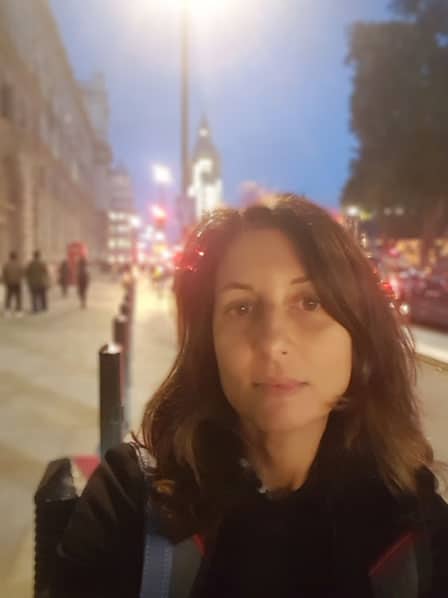This month we bring you Tanya’s story, one of our members from the London sangha.
Tell me a little about yourself?
I’m a mish mash of cultures: born in London but brought up in Italy, Africa and the Middle East. My parents are a mix of Italian (father) and South African (mother), raised in two, sometimes three, languages.
I’ve been living in London for the past 20 years even though I initially intended to stay here for one! I’ve worked (or tried to ;-)) as a make-up artist for most of my adult life but I’m still searching for my ‘fit’. I’ve recently rekindled my love of horses. Who knows, this may be a possible new direction, the owner/director of the stables I belong to also works with horses in a therapeutic/ recovery work context. I may look into applying for a volunteer post to begin with….
Could you share a little about your recovery process and what led you to Refuge?
I found my way into the rooms of 12-step meetings over 20 years ago, while I was living in South Africa. My life was incredibly chaotic: Crazy relationship, constantly in and out of food, drugs and alcohol (or anything I could use to feel good/high/soothed/numb, etc), I’m not always sure in what order. Compulsive/disordered eating is what brought me in, even though I couldn’t control any of these other compulsions. At the time, what I thought was killing me was my inability to keep my relationship with food, sugar in particular, under control – sugar was a powerful gateway into other substances although they also served to free me from the relentless torment of body/food/weight obsession.
I became more of an active participant in recovery once I left the relationship and changed country, which brings me to my arrival here in the UK. Of course, I discovered other underlying factors such as career and finance related issues, co-dependency and unresolved childhood trauma…
I initially heard about Noah Levine and Refuge Recovery through Tommy Rosen’s Recovery 2.0 program, after taking part in his coaching program in 2014. At the time I’m not sure if there were any meetings here in the UK, perhaps there were, but at the time the idea of applying Buddhist principles to food addiction seemed too remote and certainly not something I felt ready to embark on…I’ve relapsed so many times in this area and with a lot of support, too. Trying to recover without peer-to-peer, in-person support seemed impossible, so I just pushed the idea to one side. What I discovered through Tommy’s Facebook group was a more compassionate and affirming approach to recovery, more holistic and healing. I liked the body-based yoga approach as an added resource since I was exploring Bioenergetics and body based therapy. I can’t remember exactly how but I found my way onto the Refuge Recovery Facebook page which then led me to the Sunday evening group here in London!
What part does Refuge Recovery play in your own recovery?
It’s still growing, from within…although there’s still so much to work through, there are times I can sense my feelings of shame diminishing…
Refuge has given me the ability to offer myself kindness, compassion and eventually forgiveness – I never thought I’d have the capacity to acknowledge these needs within myself. I don’t think I even knew these were genuine needs. You were one of the first people I spoke to in RR (so glad you were!). I remember nearly falling off my chair when you suggested I practice the Metta and offer myself loving kindness – I don’t think anyone had ever suggested that to me in an initial recovery practice.
How does Refuge Recovery support your recovery challenges?
I find the inventory questions address the underlying factors that led to addiction very early on, which helps take my focus off the substance and points me to the heart of the matter. I still need the support of other recovery groups to address my ongoing struggles with food and weight obsession, but my hope is to gradually move towards a more mindfulness approach in this area. Let’s see where it all leads me…
What’s your favorite part of the book?
I can’t say there’s one thing that stands out more than the rest. I like the stories because they shed light into my own. In the Wednesday group we’re reading through Chapter Eight: Action/Engagement. The section on honesty was a good reminder that guilt, shame and remorse will easily lead me to acting out one way or another – I’m still easily led into thinking that I can “get away” with things…
If I attend a Refuge Recovery meeting in your area, what can I expect?
A friendly warm welcome! The Sunday group at the Jamyang Buddhist Centre is our largest meeting, whilst our mid-week gathering in Westminster fluctuates from week to week. It’s ideal if you like a smaller more intimate setting. 😉
Can you give us some examples of what you’re working on within your sangha?
We’re still working on spreading the word about Refuge Recovery and the fellowship here in London and encouraging people to work with each other through the inventory questions (if they can’t find mentors).
Tanya, thank you so much for your time and honesty. Is there anything else you’d like to add?
I think that’s it!

